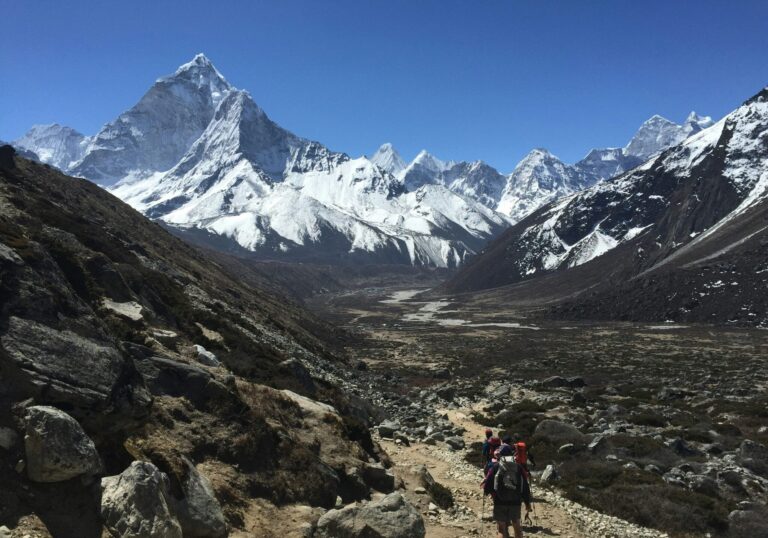Introduction
The future of tour operators in Canada is constantly changing, with new technologies and shifting consumer preferences. As a tour operator, it’s important to stay on top of trends and innovations in this fast-paced industry in order to succeed.
To succeed in this evolving market, embracing new technologies, sustainability, and unique adventures is crucial. TripSyncer helps streamline road trip planning with features like AI-recommended activities, real-time updates, and easy activity coordination. Designed for both solo and group travelers, it lets you focus on making memories while staying ahead of industry trends.
In this article, you will learn about:
- The impact of virtual tours and AI travel assistants on the travel experience.
- The significance of sustainability and local experiences.
- Crafting unique adventures through cultural tours and specialty experiences.
- Building a resilient business with strategic planning and career opportunities.
- Harnessing the power of data to shape the future of tour operations.
Discover these important trends that are shaping the future of tour operators in Canada and find out how to stay ahead in a competitive marketplace.
1. Embracing Technology in Travel Agencies: Virtual Tours and AI Travel Planners
Virtual tours have become a game-changer in the travel industry, providing immersive experiences without the need to leave home. These tours leverage technology like 360-degree videos and interactive platforms to offer travelers a real-time view of their destination. By allowing users to explore places virtually, they help build excitement and provide a sneak peek into what awaits them.
Benefits of Virtual Tours
- Cost-effectiveness: Reduces the need for physical presence, saving on travel expenses.
- Accessibility: Enables people with mobility issues to experience destinations.
- Convenience: Allows travelers to plan their trips more effectively by previewing attractions.
AI-powered travel assistants are revolutionizing how tour operators manage their businesses while enhancing customer satisfaction. These intelligent systems include chatbots and personalized recommendation engines that streamline operations and provide tailored experiences.
How AI Travel Assistants Work
- Chatbots: Handle routine inquiries, making customer service efficient.
- Personalized Recommendation Engines: Use data analytics to suggest activities based on user preferences.
Leading tour operators have already integrated these technologies with notable success:
- Example 1: A Canadian tour operator uses virtual tours to showcase remote wilderness areas, attracting eco-conscious travelers.
- Example 2: Another operator employs AI chatbots to handle booking queries, significantly reducing response time and improving customer satisfaction.
Virtual tours and AI travel assistants are not just innovative tools; they are essential in the modern landscape of tourism. They enable tour operators to offer unique, accessible, and personalized experiences that meet the diverse needs of today’s travelers.
2. Sustainability at the Core: Eco-Friendly Vacation Packages and Local Cultural Experiences
Sustainable tourism is becoming a cornerstone for the modern traveler, with Canadian tour operators placing significant emphasis on eco-friendly practices. This shift aims to reduce environmental impact while enriching the travel experience.
1. Eco-Friendly Accommodations Leading the Change
Eco-friendly accommodations are leading this change. Green hotels and sustainable lodges are gaining popularity, offering amenities designed to minimize ecological footprints. These accommodations often feature energy-efficient systems, waste reduction programs, and locally sourced materials. Examples include The Wickaninnish Inn in Tofino, which uses geothermal heating and promotes local arts.
2. Local Experiences: A Compelling Trend
Local experiences have emerged as a compelling trend. Tour operators now integrate authentic community interactions into their itineraries. Activities such as guided tours by Indigenous groups or farm-to-table dining experiences allow travelers to connect deeply with local cultures while supporting community economies. This approach not only enhances the travel experience but also promotes responsible tourism by reducing environmental footprints associated with mass tourism.
By focusing on sustainability and local engagement, Canadian tour operators are setting new standards in responsible travel, ensuring that both the environment and local communities benefit from tourism activities.
3. Crafting Unique Adventures: Custom Itineraries for Cultural Tours and Specialty Excursions
Cultural Tourism in Canada
Cultural tourism is important for showcasing Canada’s diverse heritage. Immersive experiences such as guided museum visits or traditional performances allow travelers to connect deeply with the country’s rich history and traditions. For instance, exploring the Indigenous cultures through storytelling sessions, attending powwows, or participating in craft workshops provides an authentic glimpse into Canada’s past. These experiences can be easily integrated into a family road trip across the country.
Adventure Travel on the Rise
Adventure travel is becoming more popular among thrill-seekers looking for exciting activities. Canadian tour operators are increasingly offering experiences like zip-lining through forest canopies, bungee jumping off scenic cliffs, or white-water rafting in breathtaking rivers. These activities not only appeal to those seeking adventure but also showcase Canada’s rugged natural landscapes. Such thrilling experiences can be seamlessly included in a honeymoon guide that highlights romantic yet adventurous spots.
Specialty Tours for Specific Interests
Specialty tours are designed to cater to specific traveler groups, offering unique and tailored experiences:
- Foodies: Wine tasting tours in regions like Niagara or Okanagan Valley provide culinary enthusiasts with opportunities to savor local flavors and learn about wine production.
- Photography Enthusiasts: Guided tours focusing on picturesque landscapes, such as the Rocky Mountains or Nova Scotia’s coastal vistas, attract photographers seeking perfect shots.
- History Buffs: Historical tours that explore Canada’s colonial past or World War sites offer educational experiences that resonate with history lovers.
Tour operators targeting these specific markets stand out by providing personalized and unforgettable adventures. By combining cultural richness with thrilling activities and specialized interests, they ensure that each traveler finds an experience that resonates with their passions. Whether it’s a deep dive into Canada’s cultural tourism or an adrenaline-fueled adventure, the options are endless.
4. Building a Resilient Travel Agency: Career Opportunities and Strategic Planning for Group Travel
Tour operator careers offer a range of roles that cater to various interests and skill sets:
- Tour Operator Assistant: Supports daily operations, handles bookings, and ensures smooth communication between clients and service providers.
- Tour Guide: Provides informative and engaging experiences for travelers, requiring deep knowledge of destinations and excellent storytelling abilities.
- Sales and Marketing Specialist: Focuses on promoting tour packages, often utilizing digital marketing strategies to reach broader audiences.
Essential skills across these roles include:
- Customer Service Expertise: Ensuring client satisfaction through attentive and personalized service.
- Organizational Skills: Managing schedules, logistics, and administrative tasks efficiently.
- Communication Skills: Effectively conveying information and resolving issues promptly.
Developing a robust business plan for tour operators is crucial for long-term success. Key elements to consider:
- Market Research: Identifying target audiences by analyzing travel trends, preferences, and demographics. This helps in creating tailored offerings that resonate with potential customers.
- Financial Projections: Estimating costs, revenues, and profitability to ensure sustainable growth. This includes budgeting for marketing expenses, operational costs, and potential investments in new technology or partnerships.
By focusing on these aspects, tour operators can build a resilient business capable of adapting to industry changes while maximizing opportunities for growth.
5. Harnessing Data Power: How Technology is Shaping the Future of Travel Logistics and Destination Management
Technology in travel management is changing the way Canadian tour operators run their businesses and market their offerings. New platforms such as online booking systems are creating smooth experiences for customers, simplifying the process of organizing and reserving trips. An example of this trend is TripSyncer, a tool that provides a user-friendly mobile app for planning road trips efficiently.
AI algorithms and big data analytics are crucial in crafting personalized travel experiences. By analyzing large amounts of data, these technologies can predict traveler preferences and behaviors. This allows tour operators to offer tailored recommendations, enhancing customer satisfaction. For instance:
- Personalized Itineraries: AI-driven engines can create customized travel plans based on individual interests and past travel history.
- Dynamic Pricing: Big data helps optimize pricing strategies by considering factors such as demand trends and seasonal fluctuations.
- Enhanced Marketing: Data analytics enable targeted marketing campaigns, ensuring that promotional efforts reach the right audience.
Leading tour operators use these technologies to stay competitive and deliver superior customer experiences. Embracing these advancements positions them at the forefront of the tourism industry, setting new standards for service excellence.
Conclusion: Embracing Change for a Thriving Future as Canadian Tour Operators
Adapting to the fast-changing environment secures a bright future for Canadian tour operators. Embracing new technology, focusing on sustainability, creating unique experiences, and using data effectively are key. By keeping up with trends and innovations, you stay ahead in the industry. The future of tour operators in Canada depends on being flexible, creative, and planning ahead.
Experience the future of travel with TripSyncer, the ultimate app for effortlessly organizing your trips. Download TripSyncer from the Apple Store or Google Play Store, and ensure your journeys are smooth, stress-free, and unforgettable.
FAQs (Frequently Asked Questions)
1. What are the current trends shaping the future of tour operators in Canada?
Tour operators in Canada are increasingly embracing technology, focusing on sustainability, offering unique cultural and adventure experiences, and utilizing data analytics to enhance customer experiences. These trends are crucial for adapting to the evolving landscape of tourism.
2. How do virtual tours and AI travel assistants enhance the travel experience?
Virtual tours allow customers to explore destinations through immersive 360-degree videos and interactive platforms, making travel more accessible and cost-effective. AI travel assistants streamline operations by providing personalized recommendations and support through chatbots, enhancing the overall customer experience.
3. Why is sustainability important for Canadian tour operators?
Sustainability is vital in the tourism industry as it promotes responsible travel practices that minimize environmental impact. Canadian tour operators are increasingly adopting eco-friendly accommodations and offering local experiences that foster authentic interactions with communities.
4. What types of specialty tours are gaining popularity among travelers?
Cultural tours showcasing Canada’s diverse heritage and adventure travel activities like zip-lining or bungee jumping are becoming increasingly popular. Additionally, niche markets such as wine tasting tours for foodies and photography-focused excursions cater to specific traveler demographics.
5. What career opportunities exist within the tour operator industry?
The tour operator industry offers various roles including tour operator assistants, guides, and marketing specialists. Essential skills for success include customer service expertise, communication skills, and a solid understanding of market research to identify target audiences effectively.
6. How does data analytics influence modern tour operations?
Data analytics plays a crucial role in shaping modern tour operations by enabling personalized travel experiences through AI algorithms. Emerging platforms facilitate efficient management strategies such as online booking systems, allowing operators to tailor offerings based on individual preferences.











